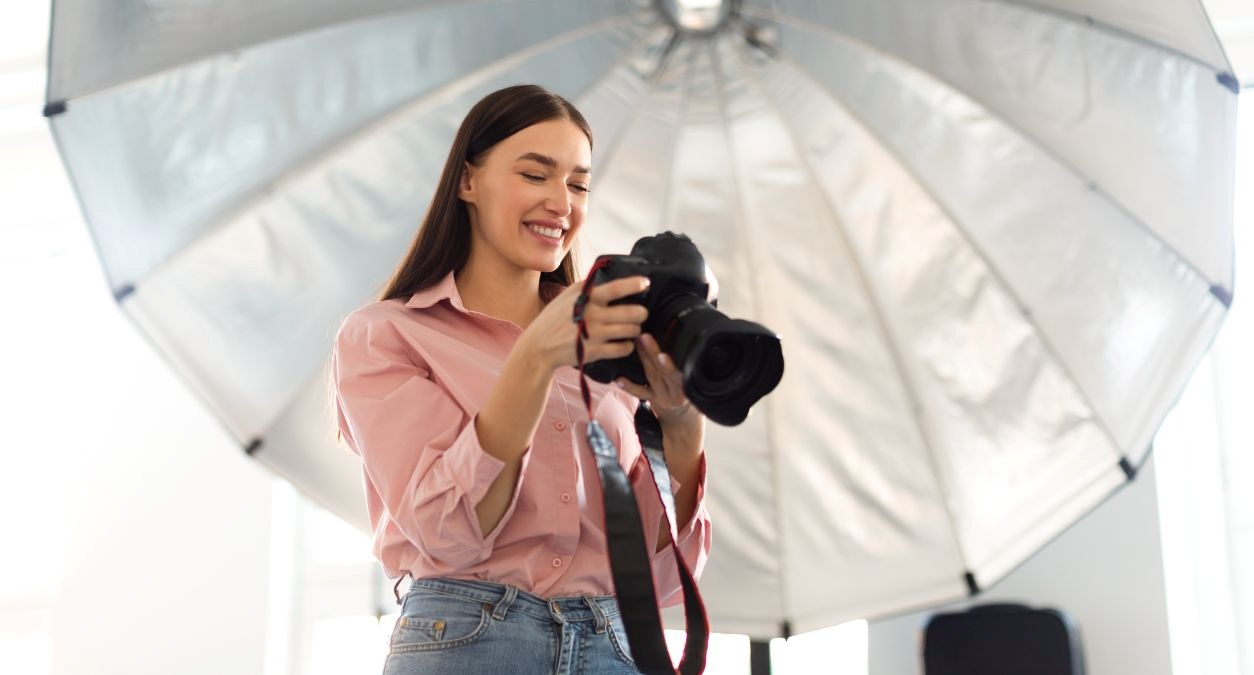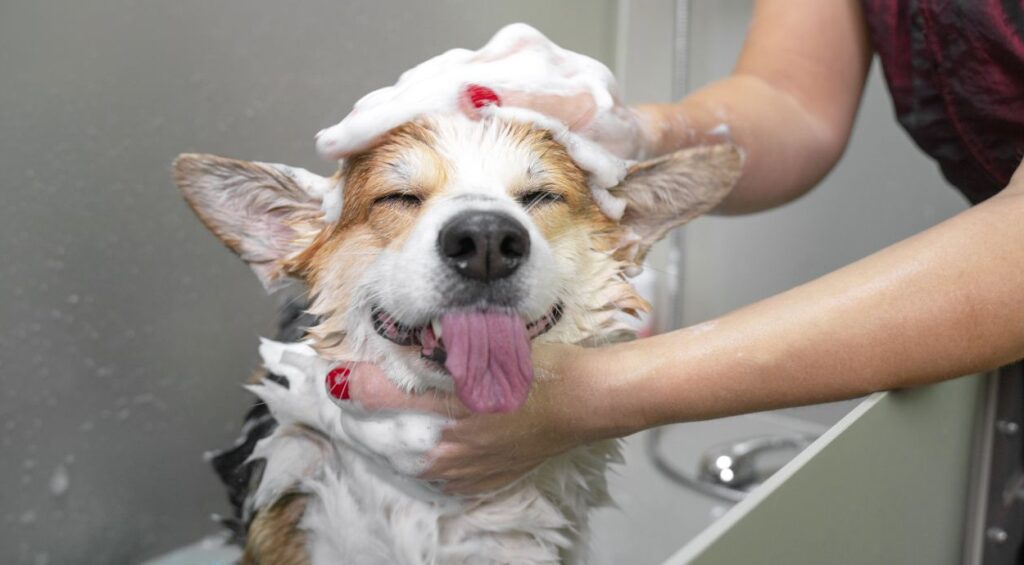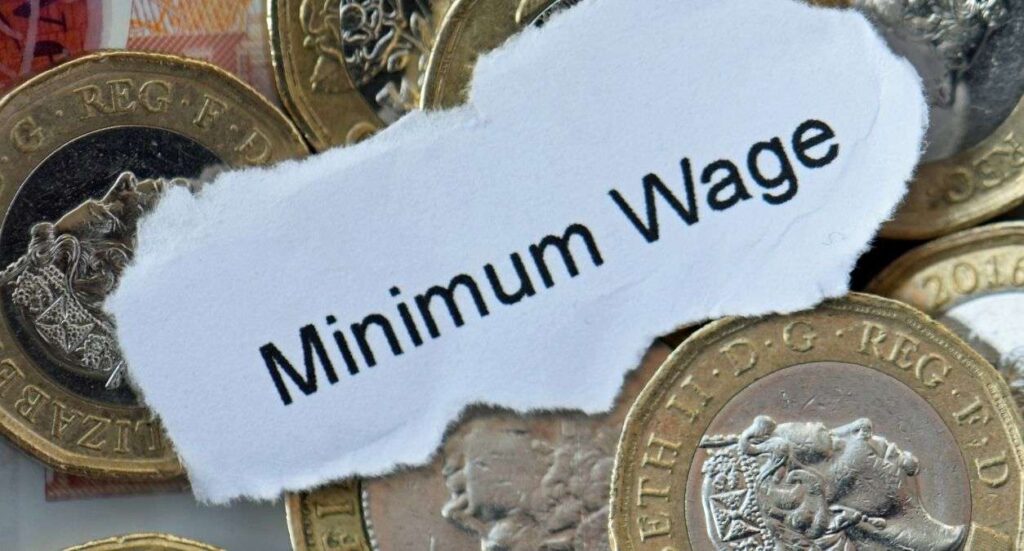Table of contents
Table of contents
Photography is one of those careers that sits at the crossroads of art and business. Event photography in particular – whether weddings, corporate conferences, or private celebrations, can be both rewarding and lucrative, but it also comes with unpredictability and competition. For those considering becoming a freelance photographer in the UK, two big questions tend to come up: How do I get started? and How much can I realistically earn?
This article breaks down both sides: the path to becoming a freelance photographer, the types of work available, and the earning potential of event photographers, whether employed or freelance. We’ll also look at the average photographer salary in the UK and explore how different choices – specialisation, location, pricing – can affect your income.
The path to becoming a freelance photographer
No one wakes up one morning and suddenly becomes a professional photographer. Most successful freelancers follow a series of steps that gradually move them from hobbyist to paid professional.
Step 1: Master the basics.
Before charging clients, you need confidence in the fundamentals. Event photographers often work in tricky conditions, dim lighting, fast-moving subjects, unpredictable schedules. That means knowing your gear inside out, learning how to balance flash with ambient light, and developing an efficient editing workflow in software like Lightroom or Photoshop.
Step 2: Build a portfolio.
Your portfolio is your shop window. At first, this may mean volunteering for local charities or offering discounted shoots to friends. What matters most is showing potential clients a consistent style and an ability to tell the story of an event through images.
Step 3: Establish yourself as a business.
Being freelance means wearing two hats: the creative and the entrepreneur. In the UK, this includes registering as self-employed with HMRC, getting public liability insurance, setting up contracts, and deciding your pricing model. Many new photographers underestimate the business side, but it’s what keeps your creative career sustainable.
Step 4: Market yourself.
Even the best photographers need to be found. This could mean optimising your website for search terms like “event photographer in Manchester” or “London corporate photographer,” building a social media presence, networking with event planners, or simply asking satisfied clients for referrals. Word of mouth remains one of the most powerful tools.
Step 5: Keep learning.
The industry moves quickly, with new editing styles, client expectations, and technologies emerging every year. Attending workshops, shadowing other professionals, and experimenting with new niches keeps your work fresh – and your rates justifiable.
Skills you need to become a freelance photographer
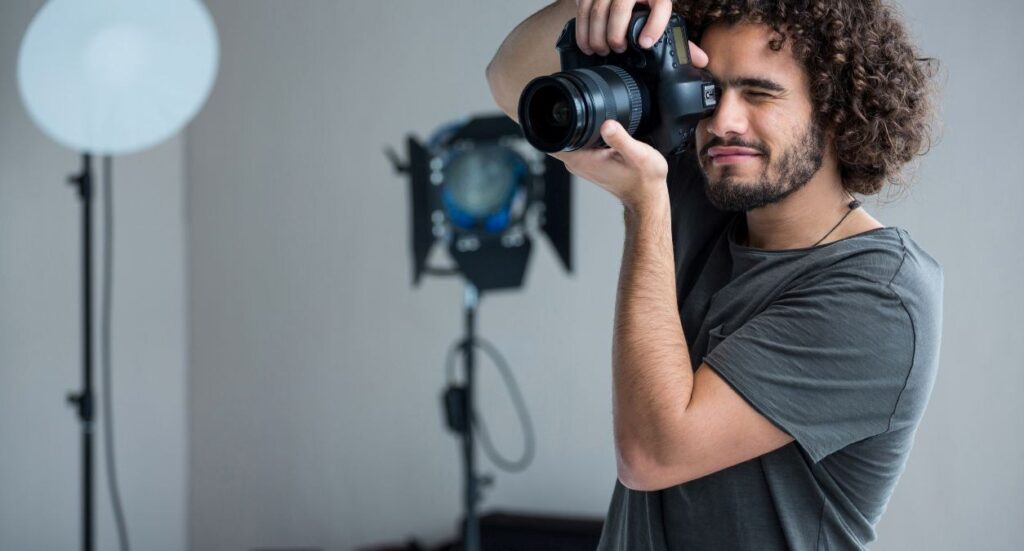
While technical knowledge is the foundation, being a successful freelance photographer requires a much broader skill set. Think of it as a blend of artistry, business, and people skills.
Technical skills
- Camera mastery: You need to be comfortable shooting in all conditions, low light, fast movement, changing weather.
- Lighting knowledge: Events rarely give you perfect conditions. You should know how to adapt with flash, reflectors, and ambient light.
- Editing expertise: Clients expect polished images. A strong command of Lightroom, Photoshop, or Capture One is essential.
Creative skills
- Composition and storytelling: Beyond sharp images, you need to tell the story of a shoot. That means capturing atmosphere, emotion, and detail.
- Adaptability: No two shoots are the same. You must think creatively on the spot to solve problems and still deliver.
Business skills
- Self-promotion: Marketing yourself online and in person is critical for finding work.
- Money management: Setting prices, tracking expenses, invoicing, and planning for tax bills are non-negotiable.
- Organisation: Freelancers juggle multiple clients and deadlines, so good time management is a must.
People skills
- Communication: From initial client meetings to giving direction on the day, clear communication builds trust.
- Professionalism: Arriving prepared, on time, and delivering when promised keeps clients coming back.
- Networking: Many gigs come through word of mouth, so building relationships is as important as technical ability.
Working as a freelance photographer in the UK
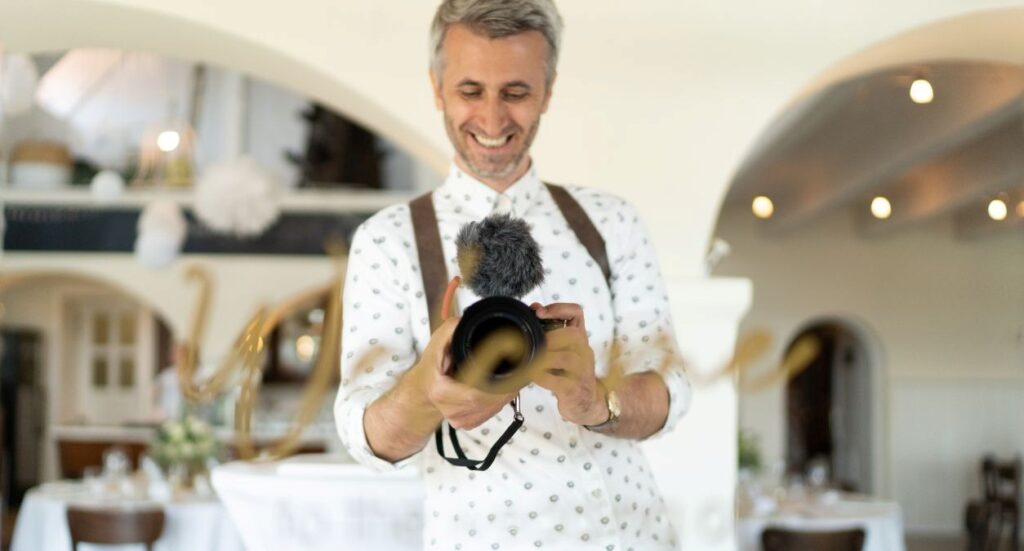
Working as a freelancer gives you freedom and flexibility, but also responsibility. You control your schedule, choose your clients, and set your prices. On the other hand, you must handle your own taxes, marketing, contracts, and gear costs. There are no sick days or holiday pay, your income depends entirely on the work you bring in.
In practice, many UK photographers combine freelance work with part-time employment, at least in the early stages. For example, you might shoot weddings and events on weekends while working a weekday job until your freelance career becomes sustainable. Others diversify into related services; videography, drone footage, photo editing, to smooth out income throughout the year.
Types of freelance photographers
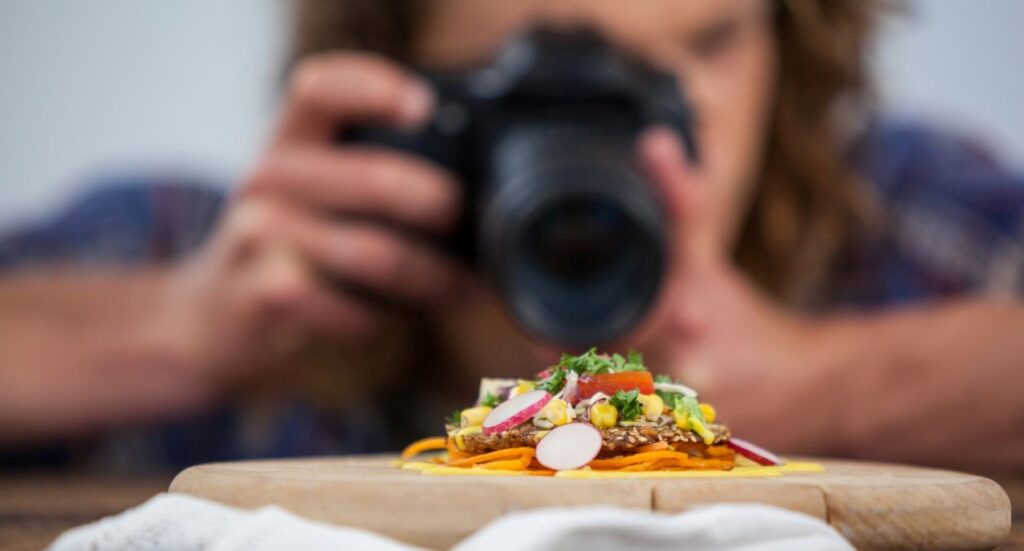
While we’re focusing on events, freelance photography is a broad field. Understanding the different types helps you position yourself and estimate earnings more accurately.
- Event photography: Covering conferences, parties, award ceremonies, product launches.
- Wedding photography: Often considered its own niche, with premium rates and long editing hours.
- Portraits and headshots: Popular with businesses and individuals, often quick turnaround.
- Commercial/product photography: For brands, e-commerce, marketing campaigns.
- Editorial and press photography: Working with publications, agencies, or news outlets.
- Stock and travel photography: Licensing images online, harder to make substantial income, but useful as supplementary revenue.
Some photographers specialise in just one area; others blend two or three to create multiple streams of income.
Average photographer salary in the UK
So, what does the money look like? According to industry surveys and job platforms, the average employed photographer in the UK earns around £24,000 to £30,000 per year. Junior roles tend to start closer to £19,000, while senior or specialist positions can climb towards £40,000 or more.
Freelancers, however, sit outside the simple “salary” model. Their income depends on how much work they book, how efficiently they work, and how high their rates are. A common finding across surveys is that freelance photographers often start lower, sometimes as little as £12,000 to £18,000 annually, but experienced freelancers with steady clients can reach £40,000 to £60,000, with the top tier in major cities exceeding £80,000.
How much does a freelance photographer make?
Let’s break this down further into realistic scenarios.
- Beginners: A new freelance event photographer, perhaps in a mid-sized UK city, may charge around £100 per hour or £300–£400 for a small half-day event. If they secure two to three bookings per month, that translates to £9,000–£12,000 annually, often not enough as a sole income.
- Mid-level freelancers: With a portfolio, testimonials, and reliable workflow, rates can rise to £150 per hour or £800–£1,200 for a full-day event. Shooting 50–70 events per year could result in gross income between £40,000 and £60,000.
- High-demand specialists: In London or other large cities, event photographers covering major corporate conferences or luxury weddings may charge £1,500–£2,000 per day, plus extra for editing, albums, or licensing rights. A packed calendar could push gross earnings to £80,000–£100,000 or more.
Of course, “gross” is not the same as “take-home.” From that figure, freelancers must deduct equipment, insurance, marketing, travel, editing software, and taxes. In some cases, 30–40% of income is eaten up by overheads.
Factors that affect earnings
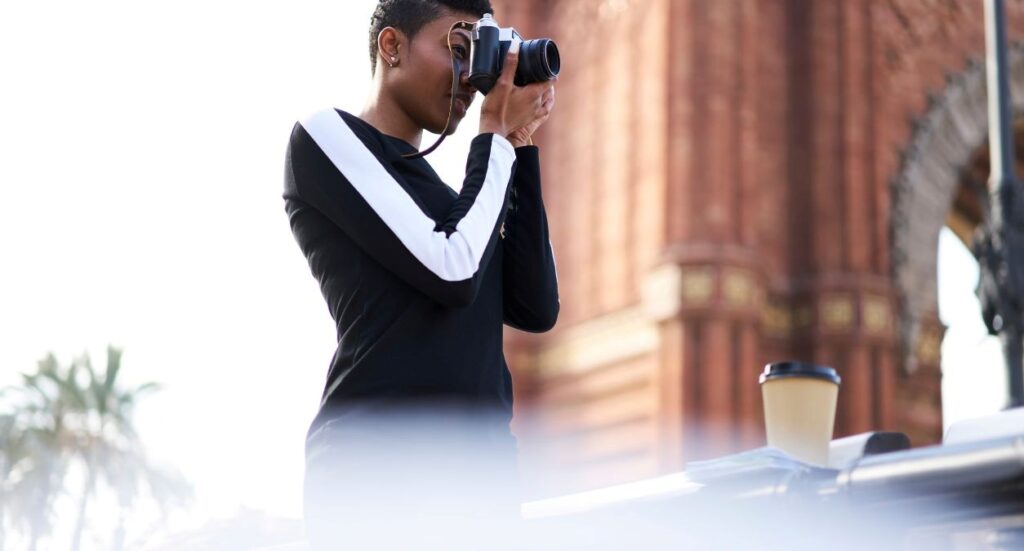
Several variables determine where a photographer’s earnings fall on the spectrum:
- Location: London and major cities command higher rates, while rural areas tend to pay less.
- Experience: A strong reputation allows you to charge more confidently.
- Client type: Corporate clients usually have bigger budgets than private individuals.
- Duration of work: A one-hour shoot may seem lucrative but can be less efficient once you include travel and editing.
- Services included: Speed of delivery, number of edited images, or additional offerings like prints and video can all push rates higher.
- Seasonality: Weddings peak in summer, corporate events often cluster around spring and autumn. Managing quiet months is part of the freelance challenge.
Employed vs Freelance: comparing event photographer salaries
An employed event photographer might earn a steady £25,000–£35,000 annually. The trade-off is stability versus flexibility. They don’t need to market themselves or chase invoices, but they also can’t set their own rates or choose which jobs to accept.
A freelancer may earn less in their first couple of years, but with persistence, their earning potential outpaces many employed roles. Freelancers also have opportunities to diversify, selling prints, offering workshops, or expanding into video, while staff photographers typically do not.
Protect your photography business with Photographer Insurance from Protectivity
As with every type of small business, having specialist insurance is essential – and for photographers, cover tailored to your profession provides peace of mind and protection.
Protectivity’s Photographer Insurance is designed specifically for professionals like you, whether you specialise in weddings, commercial shoots, or portrait photography. Their cover includes up to £5 million public liability insurance, along with other optional benefits such as professional indemnity, personal accident cover, equipment protection, and employers’ liability if you have a team working alongside you.
Protectivity’s policies are flexible, with manageable payment options, so you can focus on growing your photography business with confidence. Take a closer look at Protectivity’s Photographer Insurance creative professional policies and see how it can support you and your business today.
Get Photographers Insurance from Protectivity
*Disclaimer – This blog has been created as general information and should not be taken as advice. Make sure you have the correct level of insurance for your requirements and always review policy documentation. Information is factually accurate at the time of publishing but may have become out of date.
Last updated by




